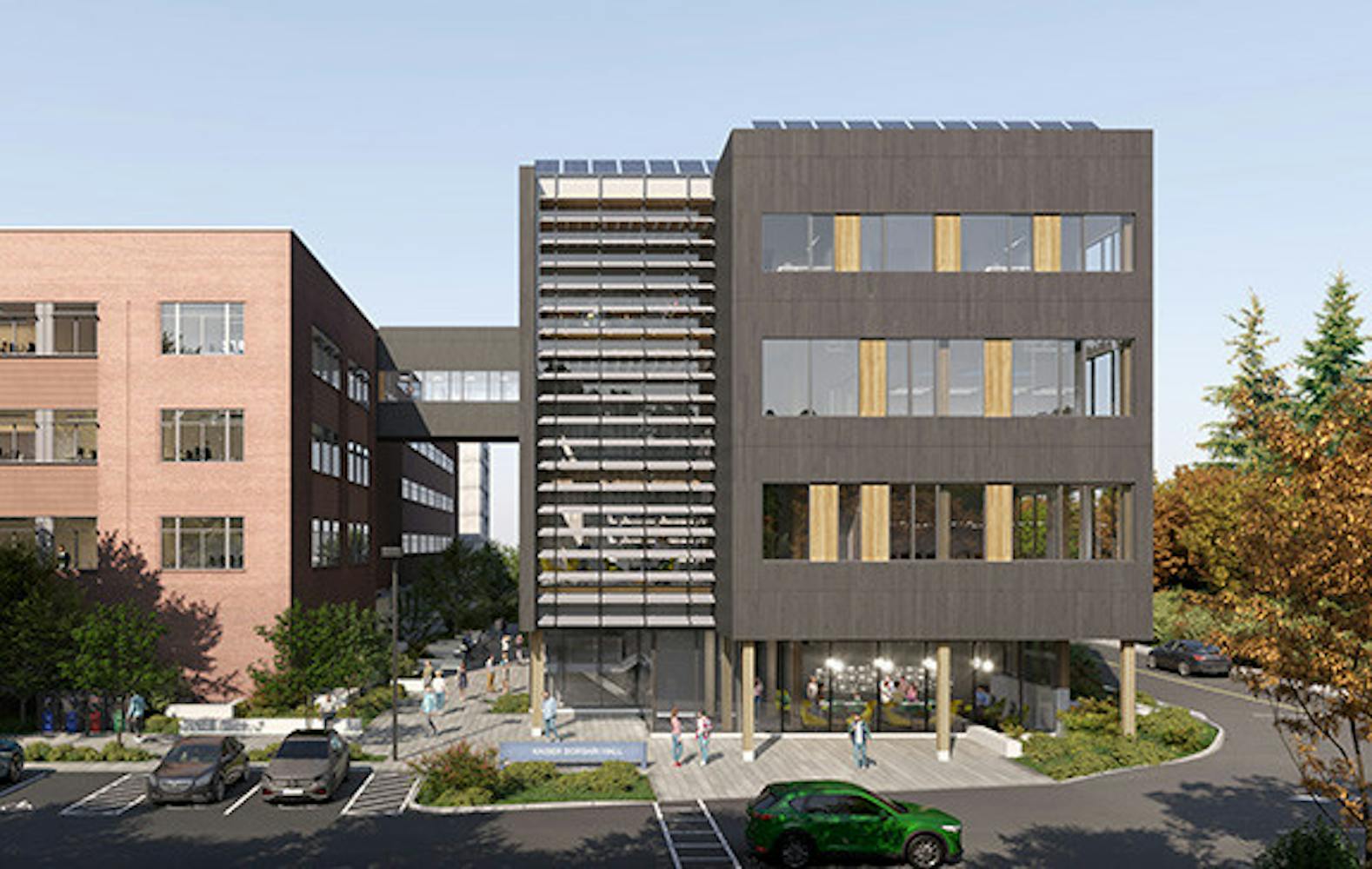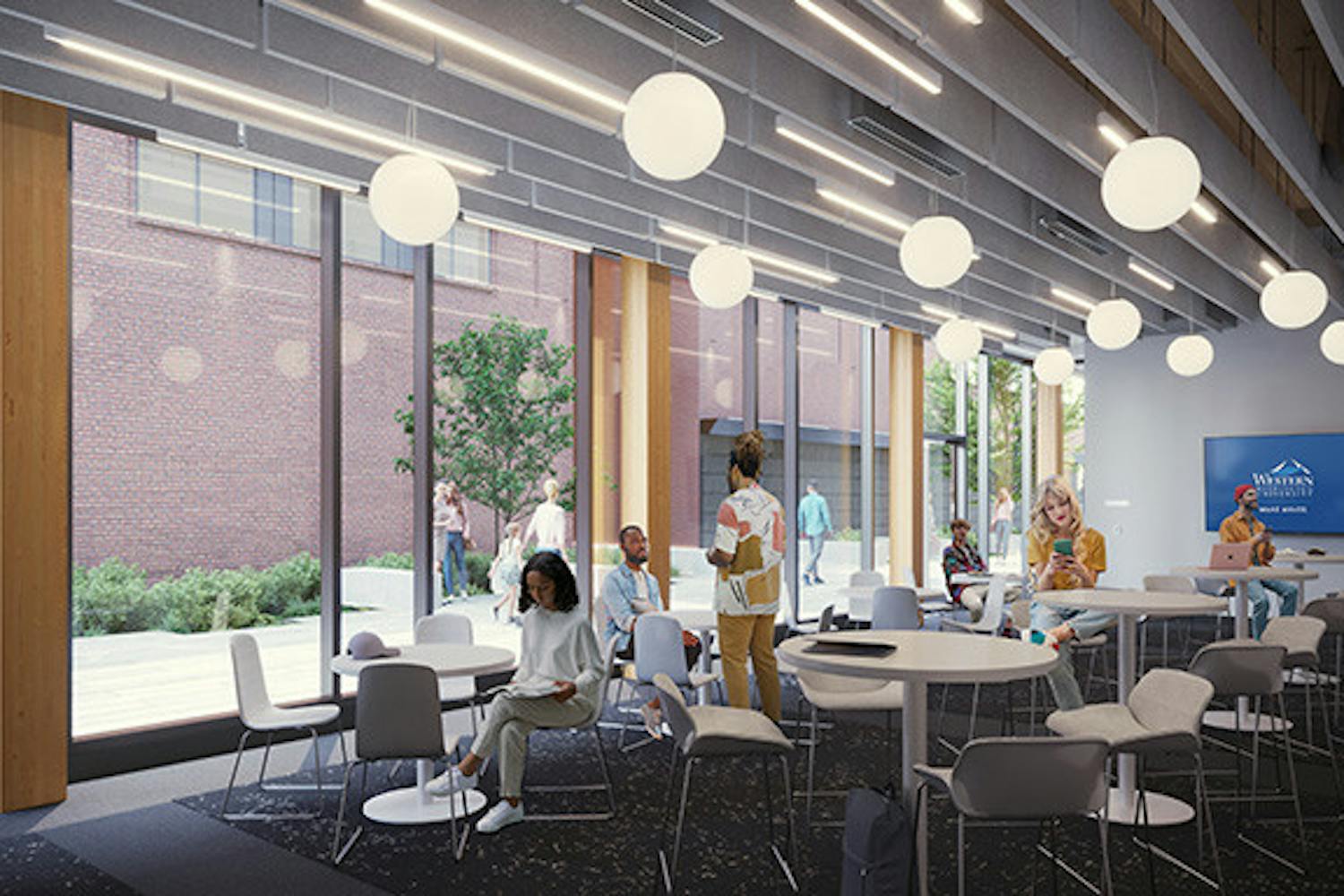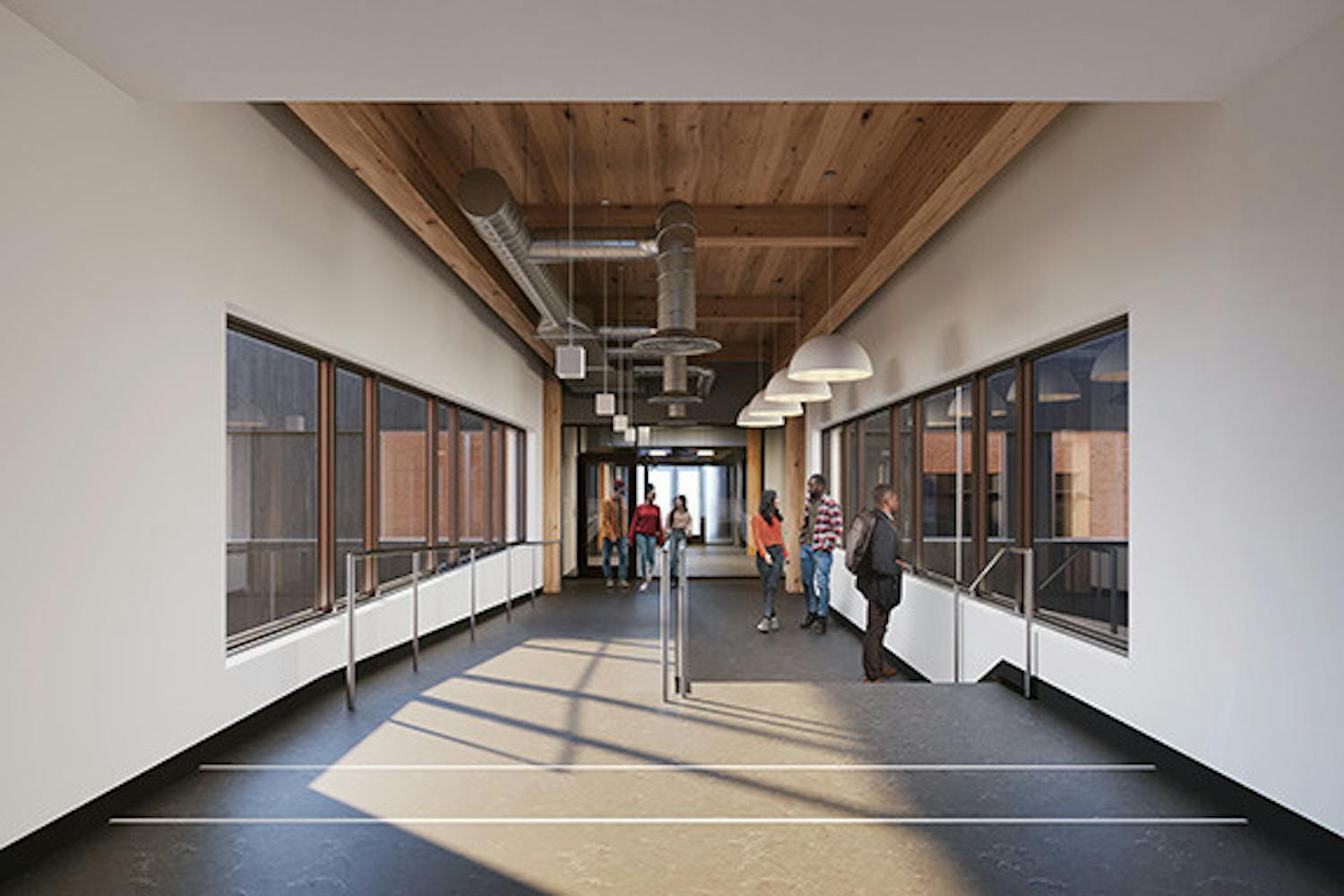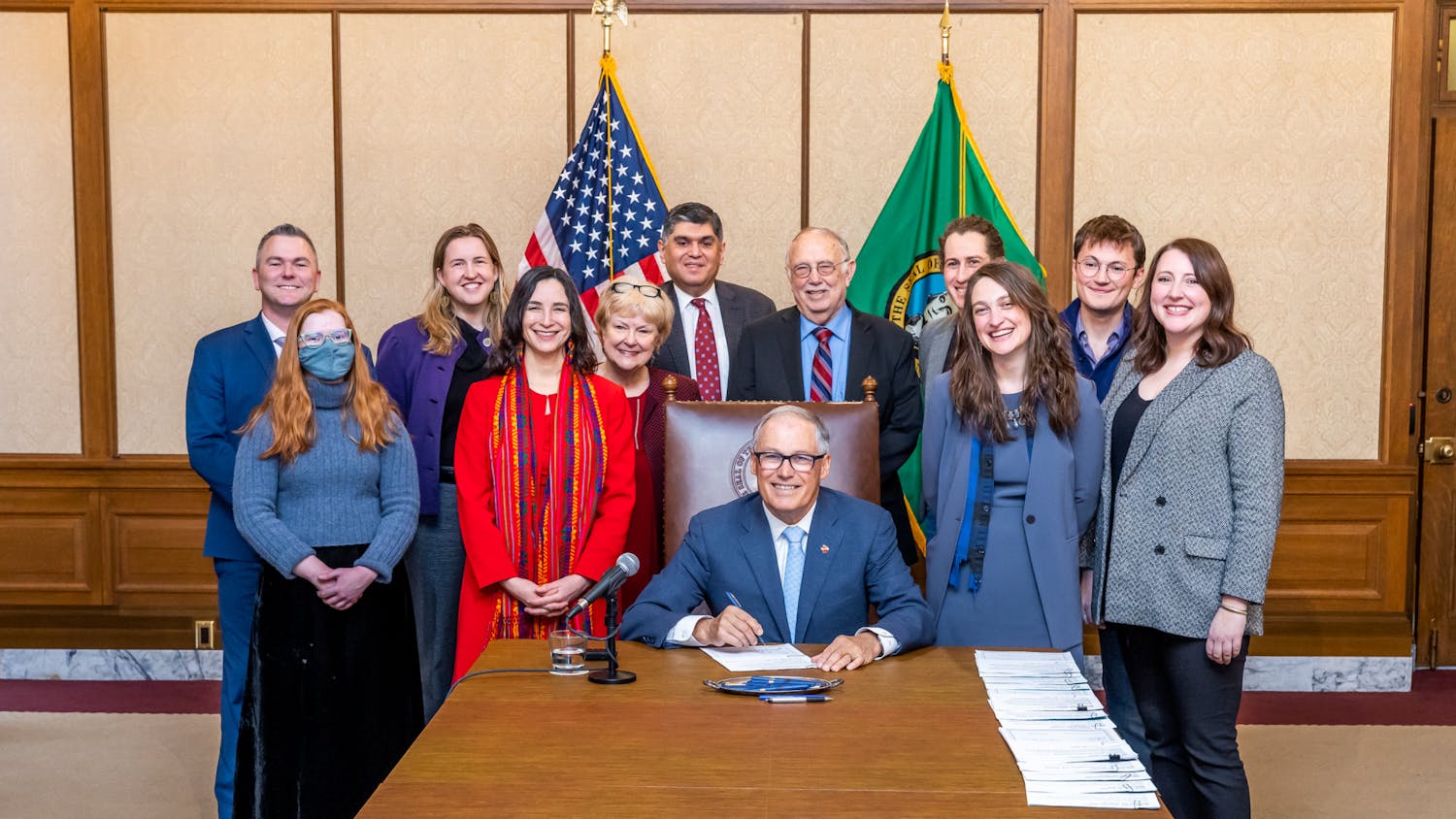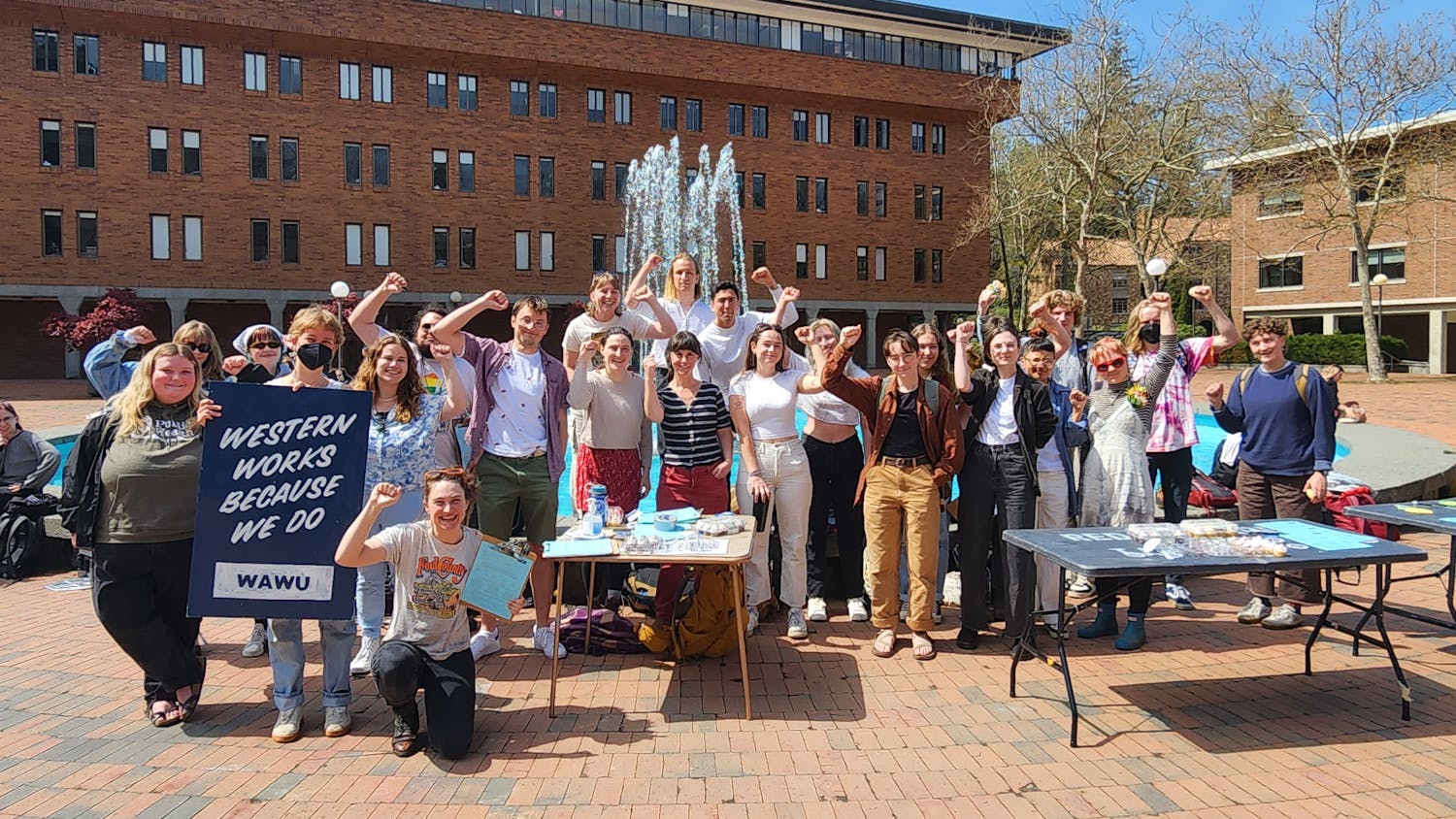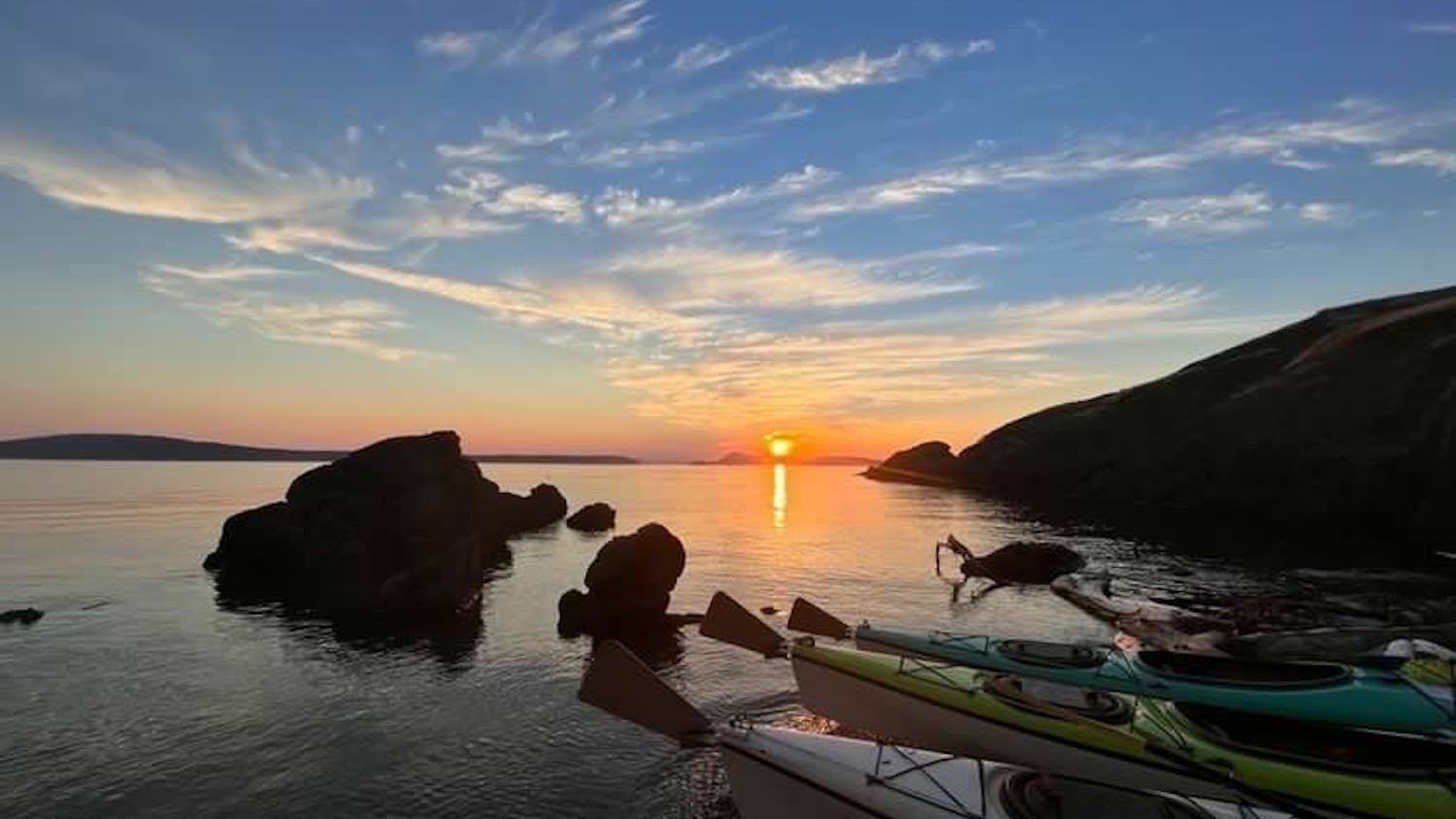Construction on Kaiser Borsari Hall, Western Washington University’s newest building, began March 20. Work on the 54,000-square-foot facility, projected to be completed in early 2025, broke ground east of the Communications Facility.
Housing Western’s overloaded electrical and computer engineering, computer science and energy science programs, the building will provide classrooms, study spaces and administrative spaces, as well as state-of-the-art labs, which will be a much-needed upgrade from existing labs.
The building will cost $73.6 million in total and construction is managed by local contractors and vendors, according to Lisa Brennan, communications and marketing coordinator for Western's Capital Planning and Development.
Kaiser Borsari Hall is controversially named after Fred Kaiser and Grace Borsari, who donated $10 million to the project. Kaiser and Borsari admitted to cheating on income tax returns in the late ‘90s and early 2000s. For coverage on Kaiser and Borsari’s tax evasion case, click here.
Currently, Western’s computer science and electrical engineering programs accommodate far more students than instructional spaces were designed to hold and are turning away highly qualified students due to limited infrastructure, said Western Professor Andy Klein.
The lack of classrooms and labs also increases students’ time-to-degree as classes fill up quickly, forcing students to postpone taking the classes they need for graduation. Western’s limited facilities are also a barrier in hiring new faculty who have higher expectations for lab and classroom space and equipment, Brennan said.
Computer science pre-major Quincy Odom is looking forward to more classroom space in the new building.
“The classrooms are way too small for the amount of people in them,” he said. “I've seen people have to sit by the wall because they couldn't get a seat.”
Western faculty have also felt the effects of limited space. Erik Fretheim, director of cybersecurity programs, said faculty are understaffed and overworked trying to accommodate the number of students in their programs.
Beyond accommodating more students and faculty, the new building will also cater to a diversity of physical and mental abilities and learning styles.
“The building is designed to be physically and culturally accessible, with classrooms, labs and collaborative spaces designed to support people with diverse abilities and learning styles,” Brennan said.
Andy Klein, an engineering and design professor who will work in the new building, said Kaiser Borsari Hall plans to support a diversity of learning approaches and abilities by accommodating technology and innovative furniture solutions.
“Our expectation is that the spaces will be accessible to all individuals, including those with disabilities or mobility impairments, and will provide an environment that is welcoming and supportive to students from a range of backgrounds,” Klein said in an email.
Computer science and electrical engineering are Western’s fastest-growing programs, a trend reflected in universities across Washington as well as the job market, Brennan said.
According to the 2022 Washington State Achievement Council STEM Report Card, associate, bachelor’s and graduate degree completions in STEM fields have shown steady increases from 2016 to 2020.
However, workforce demand still exceeds degree completions. According to the report, from 2021 to 2031, computer and mathematical occupations are projected to grow by 10% and software development by 15%.
“From a state-wide perspective, Washington needs thousands more people prepared for jobs in the fields of computer science and engineering than the state’s universities can currently produce,” Brennan said in an email.
Kaiser Borsari Hall’s completion will help address this issue by bringing in more faculty and, in turn, allowing for more students.
“There is a shortage of engineers in the state of Washington, and it is tragic to have to turn students away from our program each year,” Klein said. “With additional capacity to admit more students into the program, we will be able to train more WWU students for exciting careers in engineering while serving state needs in the technology sector.”
In addition to providing much-needed instructional and research facilities, Kaiser Borsari Hall will demonstrate Western’s commitment to addressing climate change and energy challenges by featuring innovative, sustainable solutions.
The building is aiming to achieve Zero Energy and Zero Carbon certification through Living Future Institute, said Brennan.
In order to achieve this, the building will feature cross-laminated timber, a form of engineered wood made by gluing together several layers of lumber. This will reduce embodied carbon, or total carbon emissions released during building materials’ lifecycle, by 63%.
Photovoltaic panels, commonly known as solar panels, will cover over 75% of the roof, producing the building’s electricity. The building will also feature an all-electrical mechanical system that allows it to detach from the campus steam plant.
“As the electric grid moves toward carbon neutrality with renewable energy sources, the facility sets a standard for future campus projects by reducing the expense of carbon offsets and utilizing a more economically stable resource,” Brennan said.
When complete, the building will be Western’s only carbon-neutral academic facility and reflects the university’s goal of becoming a fully carbon-neutral campus.
“The building is planned as an innovative hub for collaboration, where industry experts, faculty, and students come together to co-create technology and engineering solutions for today and tomorrow,” Brennan said.
Thalia Coulter (she/her) is a campus news reporter for The Front. She is in her second year at Western and is a public relations major with a Spanish minor. When not on campus or at work, Thalia can be found grabbing a bite to eat downtown with friends. You can reach her at thaliacoulter.thefront@gmail.com.


